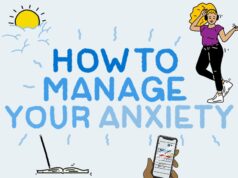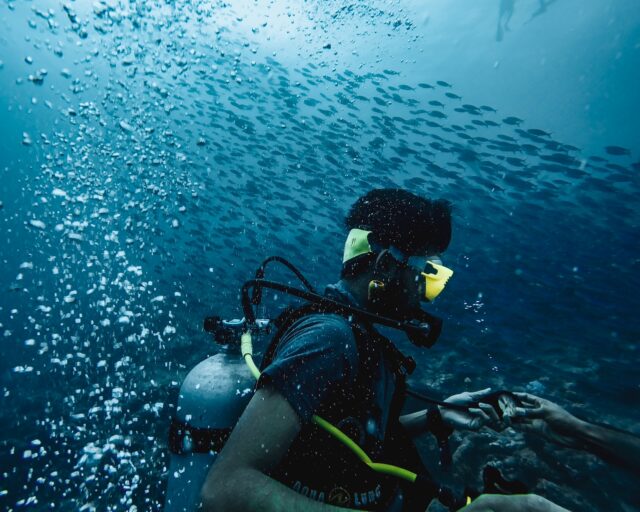
Are you someone who’s always been a little bit scared of diving? Do you panic when it comes to getting in the water? If so, you’re not alone. Despite the fact that diving is an incredible experience and a great way to explore the depths of the ocean, many people experience anxiety when they think about diving. But don’t worry – there are some tips and tricks that you can use to help you stop panicking when diving.
1. Start by understanding why you’re panicking

The first step to overcoming your fear of diving is to understand why you’re panicking in the first place. Is it because you don’t feel comfortable with the environment? Is it because you don’t feel confident in your abilities? Or is it something else entirely? Whatever your reasons for feeling anxious, it’s important to take a moment to reflect on them before you jump into the water.
The most common reasons include:
- Fear of drowning: This is a natural fear for many people — however, modern advances in scuba gear have made drowning virtually impossible for competent divers who follow safety protocols.
- Fear of deep waters: People may fear the depth or feel overwhelmed by vast ocean expanses or open water dives. If this is your issue, consider tackling smaller bodies of water first such as lakes and rivers; once you’ve gotten comfortable here you can move on to larger operations.
- Claustrophobia: The feeling of being confined underwater can be overwhelming for some people — especially if caves and wrecks are involved. In these cases, gradual exposure can help mitigate fears; many instructors start teaching their students breathing roles on land so that they will maintain proper preparation when beneath the surface.
- Illness or Injury: It is extremely important that you receive medical clearance prior to participating in any activities that may potentially put your health or well-being at risk — such as scuba diving. Depending on what kind of condition you suffer from, precautions must be taken like periodic oxygen saturation checks and completing a check dive before entering the water with other passengers (such as a buddy system). Additionally, ensure that your gear fits properly so as not to cause further injury or illness during check dives or actual dives alike.
2. Learn more about what to expect when diving
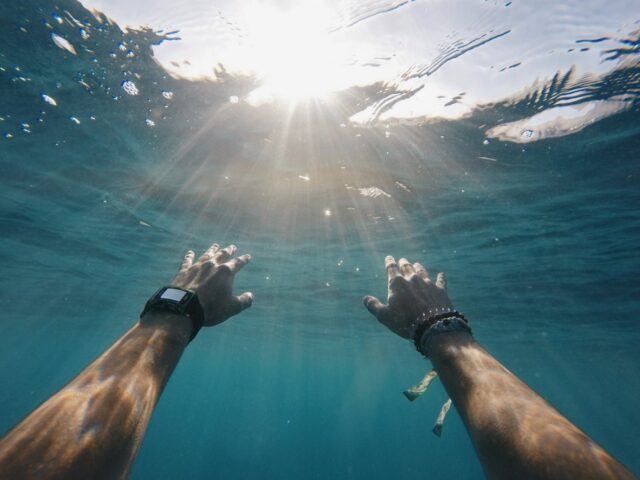
Sometimes, we can panic because we don’t know what to expect when diving. To alleviate this anxiety, spend some time learning more about the basics of scuba diving and what happens during a dive.
When you understand more about the process and how things work underwater, it can be much less intimidating. There are plenty of online resources where you can find out all the information you need, so make sure to do your research beforehand.
3. Prepare yourself physically and mentally
Preparing yourself both physically and mentally is also key when it comes to calming down before diving. Make sure to get enough sleep the night before a dive and eat a good breakfast that morning – this will ensure that you have plenty of energy for your dive and make sure your body is functioning properly.
It also helps to practice some breathing exercises beforehand – focusing on controlling your breathing can help reduce anxiety levels and keep your mind clear while underwater.
4. Make sure all your equipment is working properly
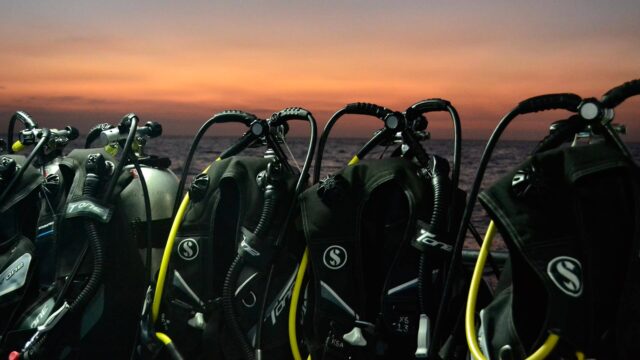
Checking all your equipment before a dive is crucial if you want to make sure everything runs smoothly while underwater. Make sure all your tanks are properly inflated, that all straps are secure and that any electronic devices, such as computers or gauges, are working properly. This way, if anything does go wrong, you won’t be left completely unprepared when you get into the water.
5. Find a buddy or instructor who can help calm your nerves
If possible, try to find dive courses and someone who can accompany you on your dive – either an experienced diver or an instructor who can give advice throughout the dive.
Having someone else around can be really comforting when we’re feeling anxious or scared, as they can provide reassurance and moral support throughout the process. They may even be able to offer helpful tips for overcoming any issues or worries that might arise while underwater.
6. Take it one step at a time
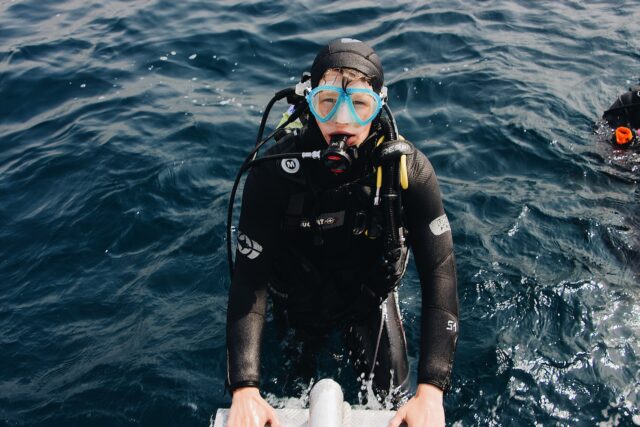
Finally, remember that it’s OK if things don’t go perfectly right away – progress takes time! Don’t pressure yourself into doing more than you feel comfortable with on each dive – start small and gradually build up as your confidence grows over time. Before long, diving will become second nature and something that no longer fills you with dread!
Seeking Professional Help
If you notice that your fear of diving is escalating, it may be time to seek professional help. Many resources are available to help treat this type of anxiety disorder, including counseling, psychiatric services, and mind-body techniques such as yoga and meditation.
Counseling is aimed at helping you identify the root cause of your fear and develop coping strategies so that you can more easily manage your anxiety when encountering a situation involving water. If your reactions are extreme or long-lasting—spanning more than a few days after a dive—talking with an experienced mental health care practitioner may also be recommended. It is important to remember that the sooner you seek treatment, the greater the likelihood of finding a successful solution.
Psychiatric services typically involve prescribing medications or other forms of therapy to reduce feelings of panic and dread when around water or in similar situations. In some cases, electroconvulsive therapy (ECT) might also be recommended as an option for reducing long-term symptoms related to anxiety disorders or severe depression caused by a fear of diving.
Conclusion
In conclusion, while diving may seem intimidating at first, there are plenty of steps that you can take in order to reduce anxiety levels before entering the water. From understanding why you might be feeling scared in the first place to finding a buddy or instructor who can provide support during dives, there are many strategies available for those looking for ways to stop panicking when diving. With practice and patience, soon enough, this hobby will become something that brings nothing but joy!



